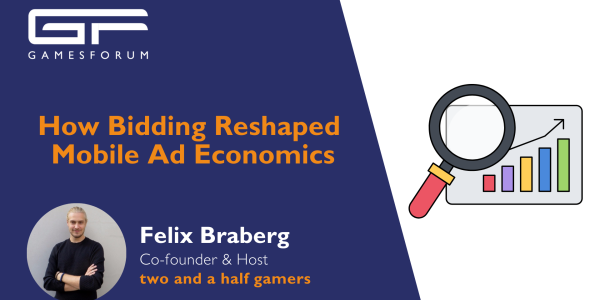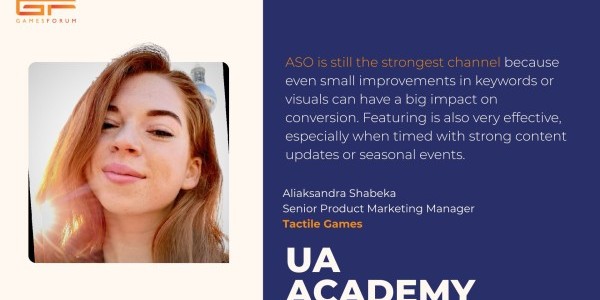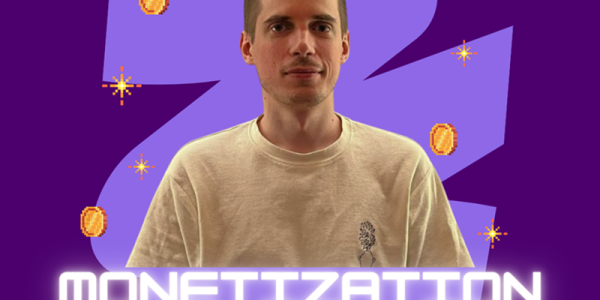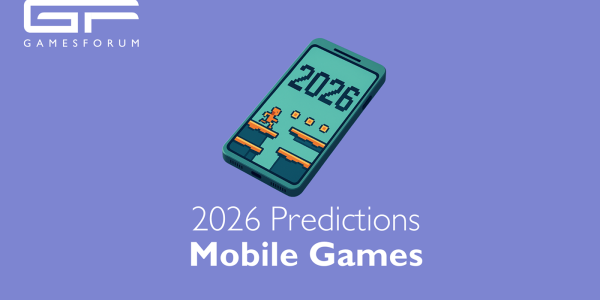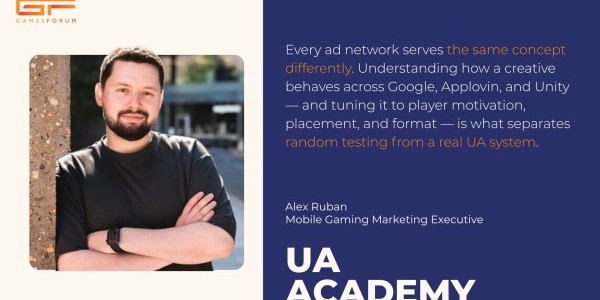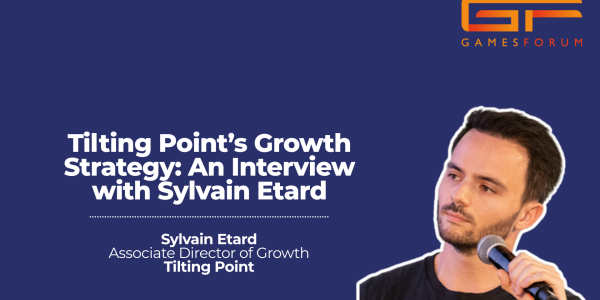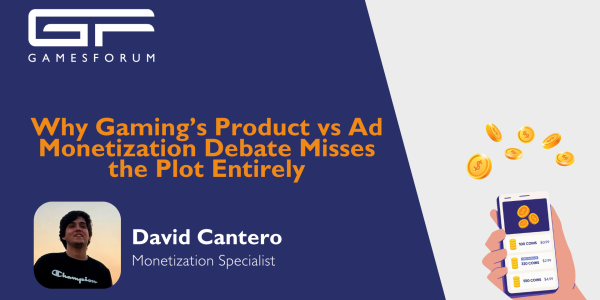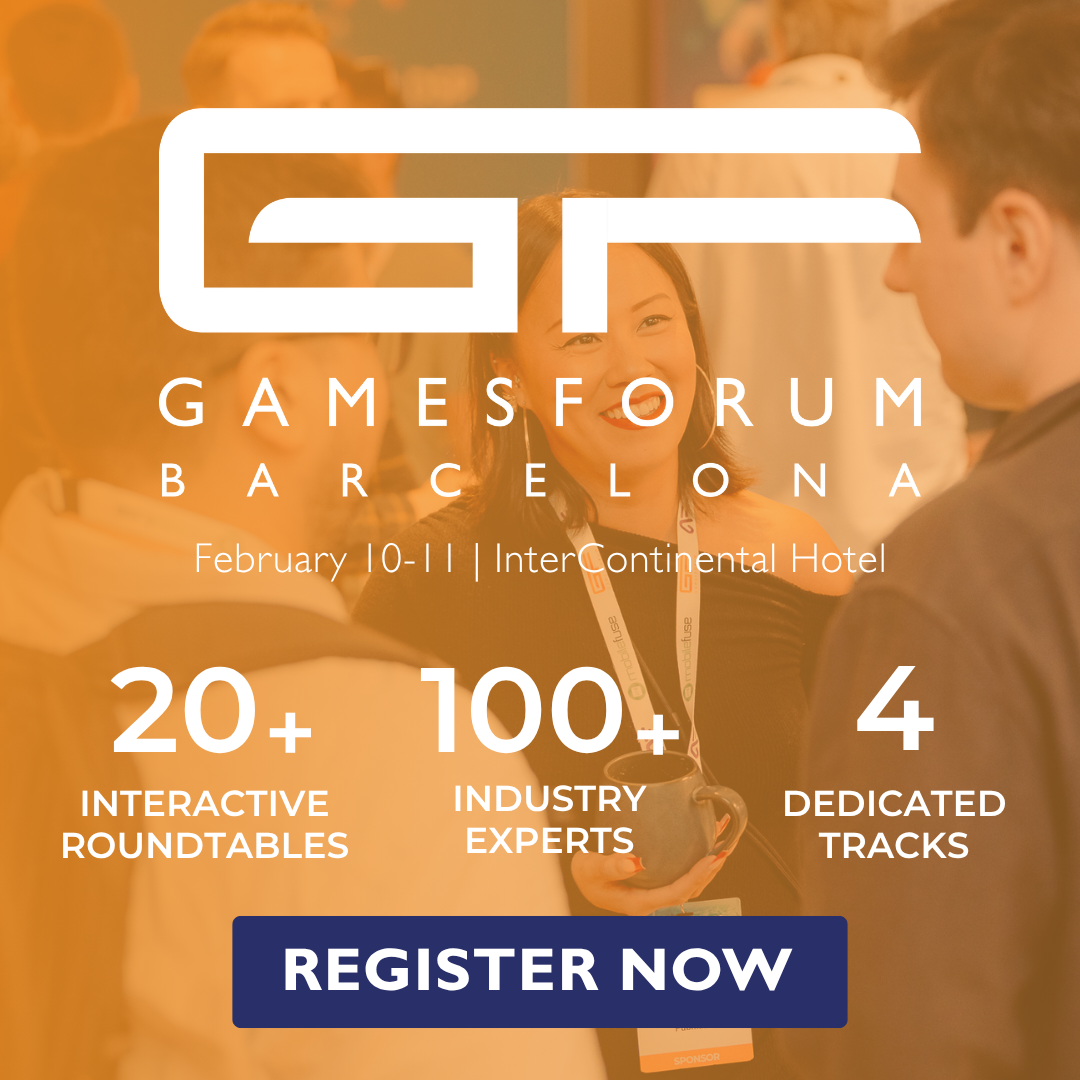“When shit hits the fan, the only thing standing between you and chaos is your studio’s culture”

We sit down with Derk de Geus from Paladin Studios to talk growing pains, company culture and finding the right balance for your employees,
Gamesforum: Hi Derk, thanks very much for taking the time to speak with me today. Can you tell me about your background and role at Paladin Studios?
Dirk: My pleasure! I am co-founder and CEO of Paladin, which practically means that I lead the management team and take care of the general management of the company. My primary goal is to keep the organization healthy and ready for the future. My background is in animation and design, with some self-taught programming and audio mixed in. So I'm a generalist. 13 years ago, in 2005, I dropped out of art school to co-found Paladin. Our goal was to build a "cool development studio", and especially in the early days it was quite the rollercoaster. Today we're closing in on 50 people, so I moved from creative role to a management role. It’s still a rollercoaster, but I can say that our initial vision is now a reality.
Gamesforum: You’ve grown Paladin Studios from 10 to 45 employees in just over 3 years – what challenges has this presented?
Dirk: Growing organically at this rate created challenges on all fronts, for everyone in the company.
For me personally, the biggest change is that I am now in a more hands-off management role. It wasn't easy for me to make the switch from "being creative" to "facilitating creativity". The growth forced me to rapidly develop my leadership skills, and for a long time I sucked at it and tried to avoid it by attempting a "flat organization" and idealizing a democratic approach. I had to start from scratch, considering what leadership actually is and why it is needed. I realized that actually I was avoiding my responsibility as the owner and chief of the company, and I had to start owning it, start carrying the burden of leadership. We still have a super transparent organization with a focus on the individuals, but we now embrace good leadership and management.
The second challenge is cashflow. For a small studio without external investors, cashflow is king, queen, the royal family and the entire pantheon of Gods. Growth costs money - usually, the cost comes before the benefits, especially when new people need to be onboarded. So a laser sharp focus on managing cashflow has been critical from the beginning, and the growth put more pressure on the cashflow. So far we have done fairly well. Although we are ambitious, we are very critical of growth, and we have to make sure we don't grow too fast for our own good. Unfortunately this has cost us several incredible project opportunities, but that's a downside we accept in return for maintaining our culture.
The third challenge is that growth can change the company culture and identity. We wanted to keep the “Paladin vibe” alive, and this was a concern in the team in the early days. For almost 10 years we were a team of less than 10 people, and growth felt like a leap into the unknown. Fortunately, we managed to preserve the soul of the studio. Recently an “old timer” mentioned that they appreciate that we still have that vibe going with this new size. To me that’s a testament to the importance of culture - it comes up in random conversations and we actively work to protect it.
Headcount growth should never be a goal onto itself, it's a means to an end. But circumstances can dictate that growth is needed - sometimes we have to choose between growth, losing opportunities, or dealing with the fallout of capacity shortage. There were moments when we could have grown 100% per year instead of 50% per year. Instead we chose the “slow” road - prioritizing quality and the sanity of the studio. I believe that these choices, painful as they were, have actually preserved us from collapsing under our own weight. And as a result, we now have a strong foundation for the future.
Gamesforum: How important is it for a games company to have and adhere to core values and how has that shaped Paladin’s journey?
Dirk: I believe it is the most important aspect of an organization. It is more powerful than strategy and processes. When shit hits the fan, for a moment nothing is certain anymore. At that moment, the only thing standing between you and chaos is your studio’s culture. It defines the collective integrity of the organization, and it is comprised of the integrity of the organization’s individuals.
We spent quite some time defining our core values together, starting with the individuals and then identifying the values that we shared. This approach made sure that it's not a random statement but something we truly live and breathe every day. We continuously deepen our understanding of our core values and have frequent conversations around this topic. Sometimes “the Paladin way” is hard to define, but it is there, and it is important to use it as a compass throughout the organization.
We take the time and put in the energy to protect our core values, and to make the tough choices when we need to. We use it in hiring, performance management, business development, strategy and day-to-day decision making. In other words, we consciously use our core values throughout the organization. It is incredibly important.
Gamesforum: What’s been your biggest achievement to date at Paladin?
Dirk: Honestly, that would be the studio itself. Every day I walk in the office I'm amazed and proud of all the good stuff going on here. There's just such a strong presence of "good vibes" in the people, the space itself, and the games we make. One can feel that it's a studio with soul, where creative people thrive - and it's my mission to build and sustain such a company.
The beauty is that it feels like we're just getting started - we are currently working on some incredible games which I believe will take the company to the next level.
Gamesforum: Crunch is of course a well-known issue in gaming and the Netherlands has some of the most enlightened employment laws in the world. What do you think studios internationally can learn from Dutch studio culture?
Dirk: The big thing to learn is that people are not robots. They need to recover from work, they need to have decent lives, room to grow. We want to be here 20 years from now, so it needs to be sustainable.
I'm sometimes a bit embarrassed when I talk to colleagues from the US or Asia - they just work so incredibly hard that we almost seem lazy in comparison with a regular 40 hour work week. Their work ethics are impressive, and I greatly respect the time and dedication they have to work. Having said that, to me it's not obvious that long hours create more value.
Ultimately, we believe that the thing that makes a great game is not "more hours" but "more spark". Spark is one of our core values. We strive to put a “spark of inspiration” into our games, and that spark is nowhere to be found after a couple of 80 hour weeks. We’re dealing with creative work here - actual problem solving and “magic finding” activities. This is high intensity, it requires focus, energy and trust. These things are usually gone after about 3-6 hours of creative work. Your brain needs time to process and incubate ideas and information, and when you're working on creative problems then a fresh start the next day is infinitely more valuable than an all-nighter.
To illustrate how we approach this, another one of our core values is "Wholehearted". While this can be interpreted as "work until you drop", we want people to actually stay wholehearted for months and years. So while working wholeheartedly means a dedication to your craft and a professional work ethic, it also means renewing your energy when you have downtime and making sure your workload is sustainable.
We're not perfect, but I think this is a super important topic and we're actively monitoring and managing this. A couple of ways we're handling it:
- Most important: Overtime is not a normal. The normal is that you work the hours in your contract
- When a manager does need to ask for overtime, we compensate it time-for-time, as soon as possible. "ASAP" is dangerous, but typically the compensation is done within a week
- Everybody gets 25 holidays per year, a standard in The Netherlands
- We monitor self-reported morale continually. We have regular one-on-one conversations between managers and their direct reports, to discuss any issues including stress levels and sustainability. In our performance reviews, we ask if the workload is sustainable. If not, we attempt to fix it
Top notch work and dedication is still expected. When you're at your desk, we ask for focus, a high level of output and professionalism. The thing that makes this work, the reason why we can ask it and actually get that output, is because people still have that fire in them, instead of being burned out from long days. The goal is to create sustainable productivity - it’s not just about this delivery, but also the next milestone, and the next project.
Gamesforum: And we can’t not ask… what games are you playing at the moment?
Ha! Honestly, being a dad I don’t get a lot of game time these days 😊 However I try to squeeze in some Civilization 5 (I tried to get into Civ6 but it didn't hook me yet), and love playing the classics on the Nes Classic Mini together with my kids. Another favorite is Stardew Valley (also with my kids) and if you don’t mind a shameless plug, I’m still hooked on our own Stormbound!
If you want to hear more from Derk, don’t miss his presentation, “How to build a team that works - growing your team to support success” on the Games Culture track at Gamesforum
Purchase your passes for the event here.

